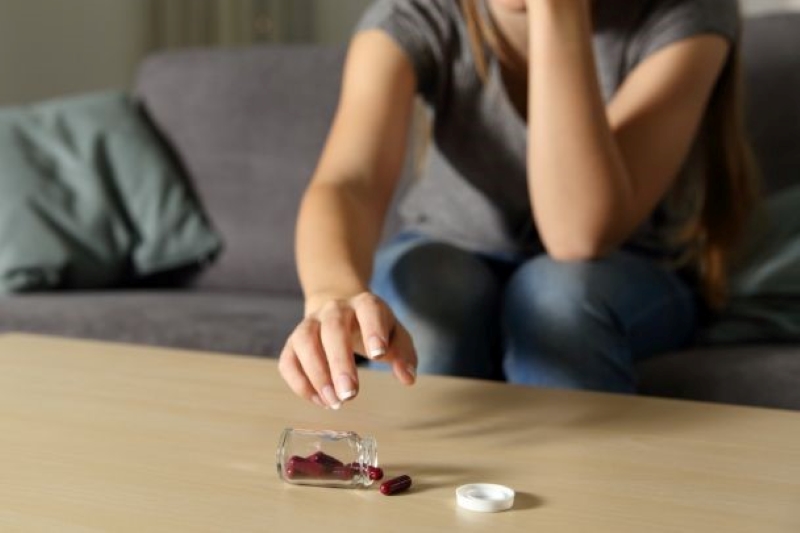
What is the psychotropic drug-related rebound effect and how to avoid it
Rebound effect: when is it linked to psychotropic drugs? The ‘rebound effect’ is a phenomenon that occurs after an abrupt withdrawal of a psychopharmaceutical drug and leads to significant negative consequences, including the return and exacerbation of the original symptom
What causes the rebound effect of psychotropic drugs and antidepressants
Psychotropic drugs can cause a rebound effect because they can have undesirable consequences on the systems on which they act during the treatment period.
The rebound effect has for some drugs its mirror corresponding to the start of treatment, especially with antidepressants, which should usually be started at low doses and then slowly increased.
For example, for anxiety disorders and panic disorder in particular, starting the full dose immediately runs the risk of worsening rather than improving symptoms.
The importance of gradualness
The initiation and discontinuation of psychotropic therapy must be followed with particular care and be gradual by increasing or decreasing the dosage and speed of the therapy, which in the first and last phases entails more frequent consultations with the medical specialist.
There are detailed and valid recommendations in the field of psychiatry especially for:
- antidepressants;
- benzodiazepines (of which, due to the specific neuropharmacological mechanism, prolonged use is also discouraged in the package leaflets, which in some individuals in particular establishes a dependency mechanism with withdrawal phenomena as well as rebound of any symptoms)
- antipsychotic drugs and mood stabilisers.
How does the rebound effect manifest itself?
Rebound side effects can be of the most diverse nature and are related to the nature of the drugs’ effects on the brain (e.g. the specific neuropharmacological systems that are affected).
To sum up, also looking at the diagnostic criteria available in the literature, side effects
- consist of a rapid return of the symptoms for which the drug was administered with increased intensity;
- are transient with a duration (in the absence of measures such as resumption of treatment and gradual reduction where possible) of up to 6 weeks;
- appear within 36-96 hours of discontinuation or abrupt dose reduction;
- they are reversible.
Of course, it must always be considered that there is no concomitant medical condition that causes those symptoms independently of the drug.
How to avoid the rebound effect
The only way to avoid the rebound effect is not to stop the drug suddenly or too quickly.
The main treatment usually implemented is to resume the interrupted drug.
Read Also
Emergency Live Even More…Live: Download The New Free App Of Your Newspaper For IOS And Android
Panic Attacks: Do Psychotropic Drugs Solve The Problem?
Rebound Effect: When It Is Linked To Psychotropic Drugs
Alcohol Dependence (Alcoholism): Characteristics And Patient Approach
About Dependence: Substance Addiction, A Booming Social Disorder
Cocaine Addiction: What It Is, How To Manage It And Treatment
Workaholism: How To Deal With It
Heroin Addiction: Causes, Treatment And Patient Management
Intranasal Esketamine, The New Drug Approved For Resistant Depression
Methamphetamine: From Drug To Substance Of Abuse
Anxiety And Allergy Symptoms: What Link Does Stress Determine?
Panic Attacks: Symptoms, Causes And Treatment
First Aid: How To Deal With Panic Attacks
Panic Attack Disorder: Feeling Of Imminent Death And Anguish
Panic Attacks: Symptoms And Treatment Of The Most Common Anxiety Disorder
Anxiety And Allergy Symptoms: What Link Does Stress Determine?
Eco-Anxiety: The Effects Of Climate Change On Mental Health
Separation Anxiety: Symptoms And Treatment
Anxiety, When Does A Normal Reaction To Stress Become Pathological?
Anxiety: The Seven Warning Signs
Physical And Mental Health: What Are Stress-Related Problems?
Gaslighting: What Is It And How To Recognise It?
Eco Anxiety Or Climate Anxiety: What It Is And How To Recognize It
Stress And Sympathy: What Link?
Pathological Anxiety And Panic Attacks: A Common Disorder
Panic Attack Patient: How To Manage Panic Attacks?
Depression: Symptoms, Causes And Treatment
Cyclothymia: Symptoms And Treatment Of Cyclothymic Disorder
Dysthymia: Symptoms And Treatment
Bipolar Disorder (Bipolarism): Symptoms And Treatment
Everything You Need To Know About Bipolar Disorder
Drugs To Treat Bipolar Disorder
What Triggers Bipolar Disorder? What Are The Causes And What Are The Symptoms?
Depression, Symptoms And Treatment
Narcissistic Personality Disorder: Identifying, Diagnosing And Treating A Narcissist
Intermittent Explosive Disorder (IED): What It Is And How To Treat It
Baby Blues, What It Is And Why It Is Different From Postpartum Depression
Depression In The Elderly: Causes, Symptoms And Treatment
6 Ways To Emotionally Support Someone With Depression
Defusing Among First Responders: How To Manage The Sense Of Guilt?
Paranoid Personality Disorder: General Framework
The Developmental Trajectories Of Paranoid Personality Disorder (PDD)
Reactive Depression: What It Is, Symptoms And Treatments For Situational Depression
Facebook, Social Media Addiction And Narcissistic Personality Traits
Social And Exclusion Phobia: What Is FOMO (Fear Of Missing Out)?
Gaslighting: What Is It And How To Recognise It?
Nomophobia, An Unrecognised Mental Disorder: Smartphone Addiction
The Panic Attack And Its Characteristics
Psychosis Is Not Psychopathy: Differences In Symptoms, Diagnosis And Treatment
Metropolitan Police Launches A Video Campaign To Raise Awareness Of Domestic Abuse
Metropolitan Police Launches A Video Campaign To Raise Awareness Of Domestic Abuse
World Women’s Day Must Face Some Disturbing Reality. First Of All, Sexual Abuse In Pacific Regions
Child Abuse And Maltreatment: How To Diagnose, How To Intervene
Child Abuse: What It Is, How To Recognise It And How To Intervene. Overview Of Child Maltreatment
Does Your Child Suffer From Autism? The First Signs To Understand Him And How To Deal With Him
Rescuer Safety: Rates Of PTSD (Post-Traumatic Stress Disorder) In Firefighters
PTSD Alone Didn’t Increase Heart Disease Risk In Veterans With Post-Traumatic Stress Disorder
Post-Traumatic Stress Disorder: Definition, Symptoms, Diagnosis And Treatment
PTSD: First responders find themselves into Daniel artworks
Dealing With PTSD After A Terroristic Attack: How To Treat A Post Traumatic Stress Disorder?
Surviving death – A doctor revived after attempting suicide
Higher risk of stroke for veterans with mental health disorders



